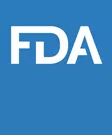Bimbo Bakeries Defends Practice of Intentionally Adding, Falsely Listing Sesame as Ingredient

Image credit: Enotovyj via Pixabay
In June 2024, the U.S. Food and Drug Administration (FDA) sent a warning letter to Bimbo Bakeries USA Inc. for intentionally adding sesame to its products, as well as listing sesame as an ingredient on products that do not contain it, rather than taking steps to prevent sesame cross-contamination in compliance with the FASTER Act.
Bimbo Bakeries’ response letter to FDA has recently been revealed by two watchdog groups—the Center for Science in the Public Interest (CSPI) and Food Allergy Research and Education (FARE)—obtained through a request to FDA under the Freedom of Information Act (FOIA). CSPI and FARE are expressing their dissatisfaction with Bimbo Bakeries’ response, and are calling on manufacturers to find an appropriate solution for addressing cross-contamination risks and taking sesame out of products that did not contain the ingredient before sesame was declared a major allergen under the FASTER Act.
Specifically, in its response to FDA, Bimbo Bakeries claimed that it had not been able to control trace amounts of sesame in some of its manufacturing facilities, and "determined that the most protective approach for sesame-allergic consumers” was to add sesame as an actual ingredient to all products that are baked on the same line as products that contain sesame. Because this practice varies by facility, in the interest of consistency, Bimbo explained that it declares sesame as an ingredient for all products with the same name, even when sesame is not an intentionally added ingredient.
“Our Phoenix facility does not use sesame in the bread line, but it produces the four breads at issue that are also produced in other facilities on lines that also produce sesame-containing products. The only difference between the products is the small amounts of sesame included in the formulas of the same products produced at those other facilities,” explained Bimbo Bakeries to FDA. Accordingly, the product names and principal display panels are identical for the four products in national distribution, and we use a nationally uniform ingredient list and “Contains:” statement to prevent confusion and protect sesame-allergic consumers.”
CSPI called Bimbo Bakeries’ practice a “perverse response to food safety rules.” The group previously petitioned FDA to ban the practice of adding allergens or falsely declaring ingredients to evade compliance with food safety requirements, which FDA denied on the grounds that the agency cannot stop companies from adding sesame or other food allergens, but can stop them from falsely declaring them as an ingredient.
Since sesame became the ninth major food allergen under the FASTER Act, food manufacturers like Bimbo Bakeries have attempted to circumvent the requirements for preventing allergen cross-contamination by intentionally adding sesame to their products and declaring its presence on their labels. In September 2023, FDA called attention to and denounced this trend, updating its guidance for industry on hazards analysis and risk-based preventive controls to include a new chapter on food allergens that helps food facilities avoid allergen cross-contact and ensure proper labeling.
FDA regulations require food manufacturers to accurately and truthfully list which ingredients are present in their products, and to follow good manufacturing practices (GMPs) and implement appropriate preventive controls to prevent allergen cross-contamination. The agency does not consider labeling to be a substitute for adherence to GMPs or implementation of preventive controls; rather, firms must comply with applicable requirements to address allergen cross-contact.
Looking for quick answers on food safety topics?
Try Ask FSM, our new smart AI search tool.
Ask FSM →






